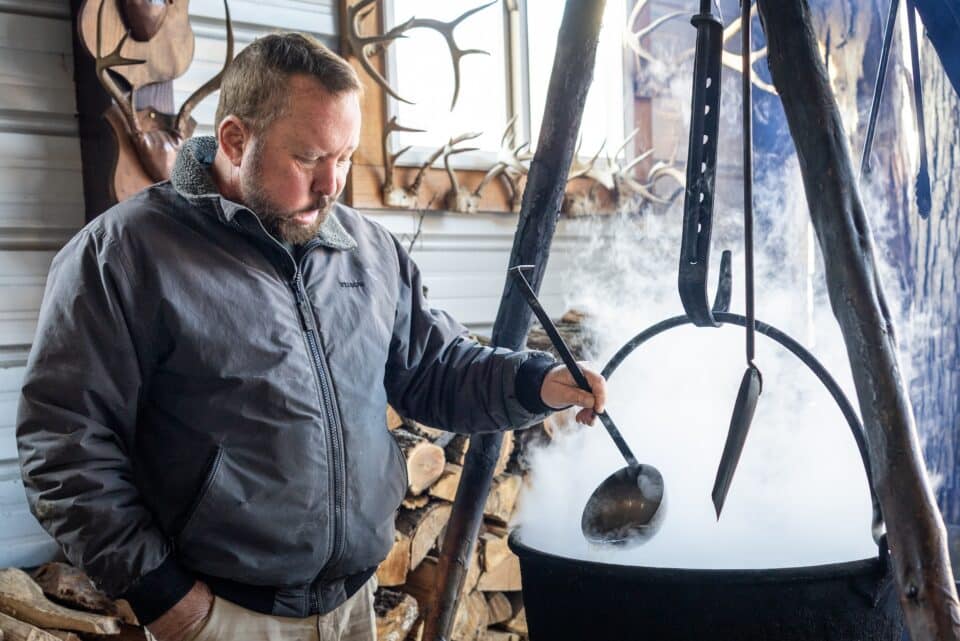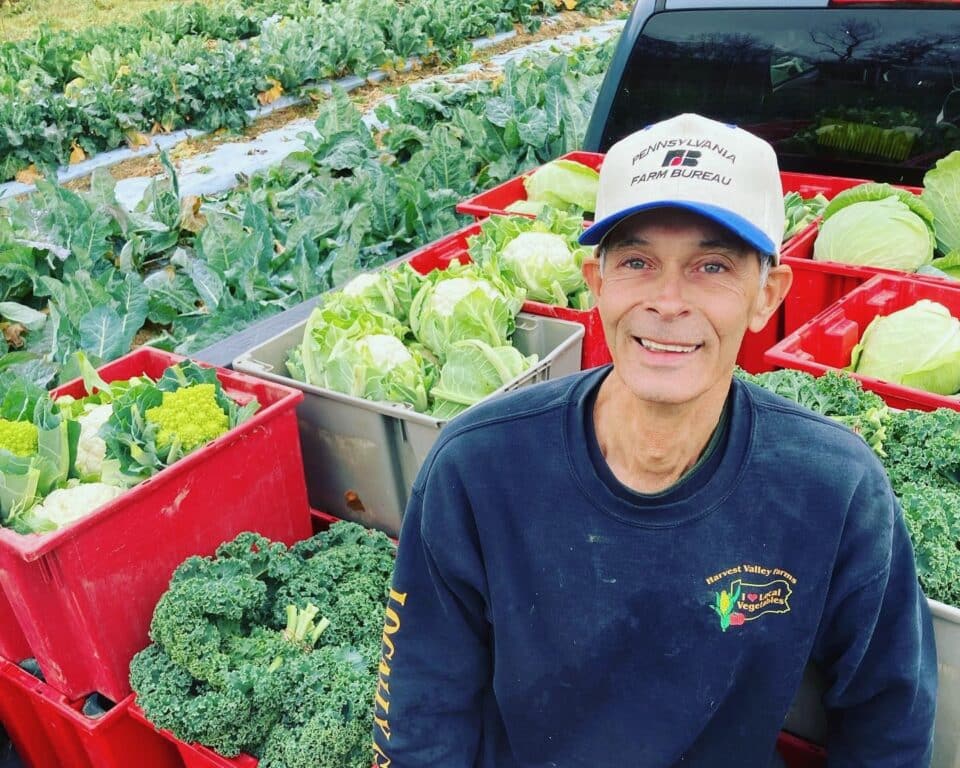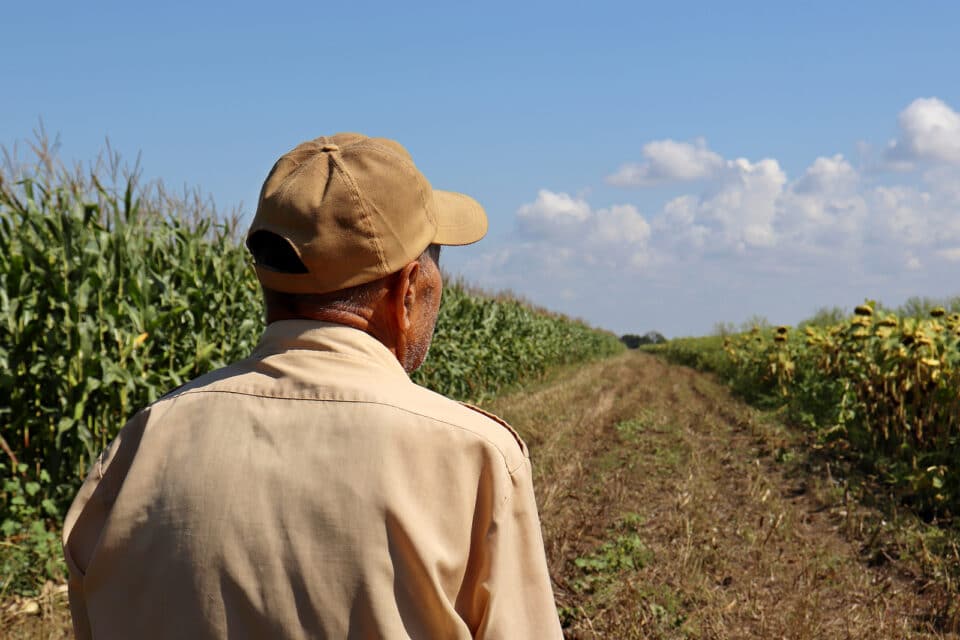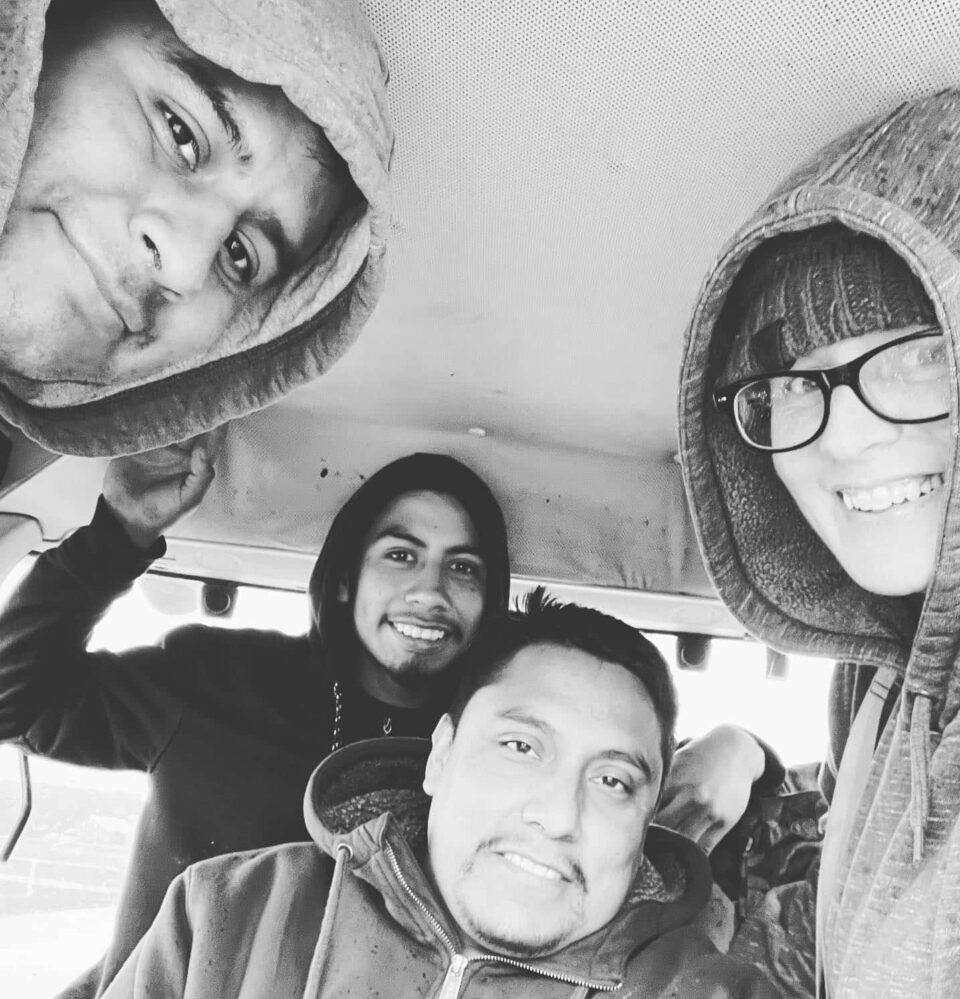There are so many paths that lead people into the agricultural industry in Pennsylvania. Some folks are born into farming families, while others transition out of former careers in search of some way to work with the land. For Johnny Parker of Edible Earth Farm in Sandy Lake, Pennsylvania, farming definitely represented a major career change: from the head of IT at Carnegie Mellon University in Pittsburgh, to a handful of acres in rural Mercer County.
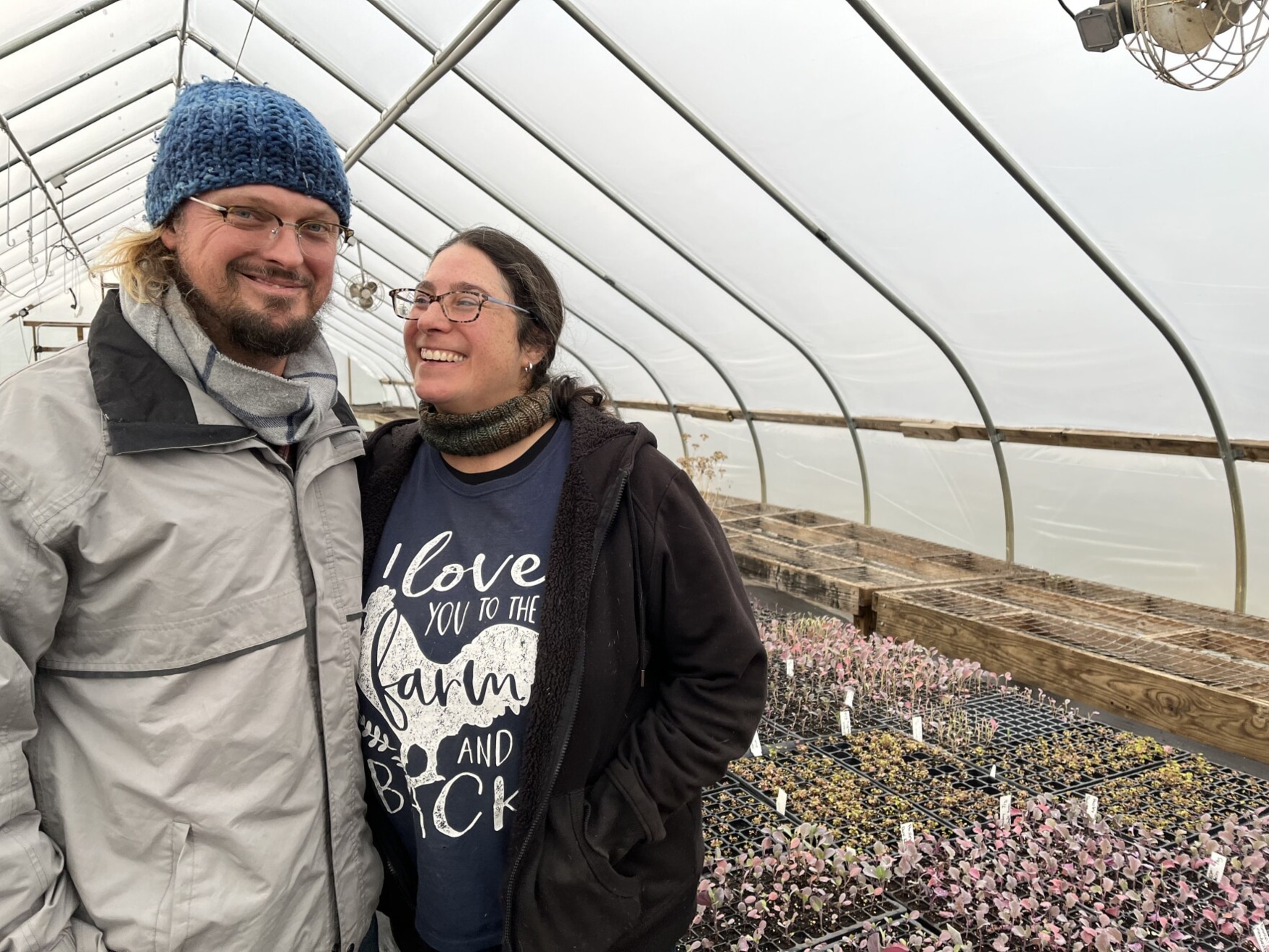
Johnny and April Parker of Edible Earth Farm
Despite it being the start of the busiest season for the farm, we were able to steal a few minutes with Parker to learn more about the organic farming operation that he runs with his wife and partner April. Check out our Q&A for more on this scrappy small farm, including why Parker thinks farmers markets aren’t always great for farmers, what rising costs and inflation mean for farms, and info on the new home delivery service they’ve recently launched in Pittsburgh.
PA Eats: Take us back to the beginning: How did Edible Earth Farm start?
Johnny Parker: Well, April and I have been together since we were 17, we met at Penn State. After graduation, we both started working in Pittsburgh. I’d done some culinary internships and went to culinary school, but ultimately went into computer science and software engineering. I got a job at Carnegie Mellon and rose through the ranks until I was head of the IT department. At the time, April was working in social services, which was a high-stress job. Around 2008, we both felt ready for a big change, and were like, What are we going to do?
We both loved to cook and were avid gardeners. From ages 12 to 17, I’d worked at an organic farm east of State College as one of the core staff. It was super-hard work ,and I still remember all of those skills. At the time, we had a one-bedroom cabin a few hours outside of Pittsburgh in a town called Tionesta, and April decided to start a market garden on our land there and then do a small CSA and some markets in Pittsburgh. She started everything, and it was pretty rudimentary at that time. That was 2010. I quit my job a year later and joined her.
That seems like such an intense life change! What were some challenges you faced in the beginning?
First, everything costs so much money: property, labor, insurance … We realized that you need $100K year to exist even on a really small scale. You have to sell a lot of food to make that, even just to break even. So we realized that we needed to scale quickly, and we ended up buying another property, it had an eatery and ice cream shop on-site, and we dabbled in that, but it didn’t really work in a small town. We tried everything we could think of to propel ourselves forward.
A lot didn’t work, for various reasons. For instance, this is kind of controversial, but I think farmers markets are a waste of time, and that there is something inherently flawed about them. It’s extremely political. Sometimes the markets regulate what you can bring, where your spots are. It’s very limited and restrictive, and the good markets you can’t even get into unless you’re well connected. To be fair, we were part of a great market for many years in downtown Pittsburgh, and it wasn’t free of politics, and you’re there with a lot of other people who sell a lot of the same things at the same time of year. We tried to differentiate ourselves with unique items like ginger, turmeric and lemongrass, and we started raising chickens for eggs and meats, but it just didn’t work for us, and we let the markets go in 2019.
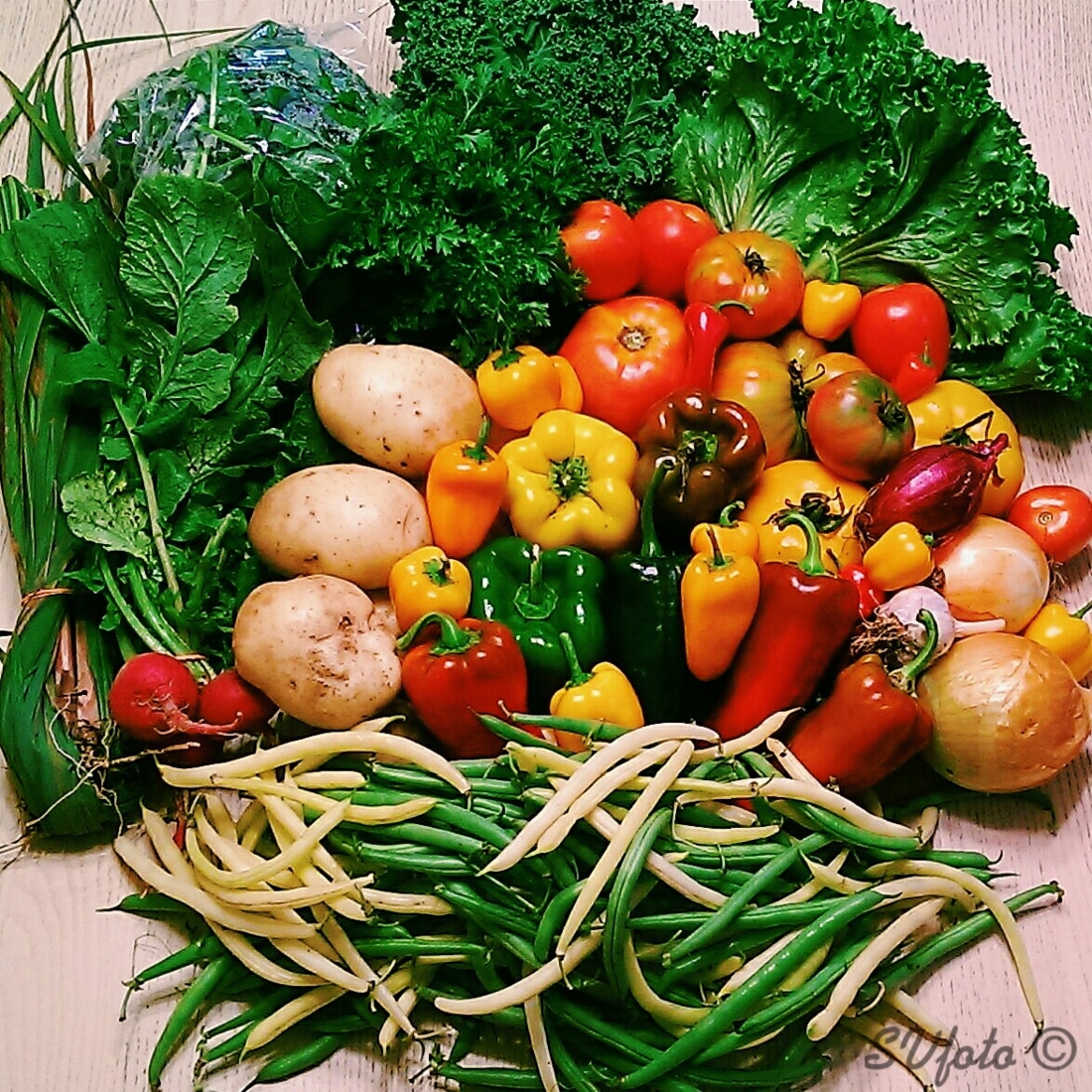
When you decided to pull back from farmers markets, what model did you pursue?
CSAs have really worked for us, and we went with that. We have a great network of friends and colleagues, some of whom have been with us from the start. Now, we’re exploring the strategy of “more for more,” meaning more value and more product for more money. We’re enlisting new CSA members as referrals from the enthusiastic families we serve.
I do think this will be a make-it-or-break-it year for a lot of farms, the same way last year was for restaurants. The problem is that now CSAs are competing with food delivery services that are corporate run or have large financial backing. But I don’t think a year like this warrants no innovation — I’d argue it warrants more innovation, and that’s the path we’ve employed. We’re shaking up everything. In our CSA, you pay a subscription fee for the year, and you log into our site. We have everything from dried fruit to meat, and you buy what you want a la carte and we package it for you. We’ve also launched home delivery through a courier service, and have 100 spots available in the eastern and southern communities of Pittsburgh.
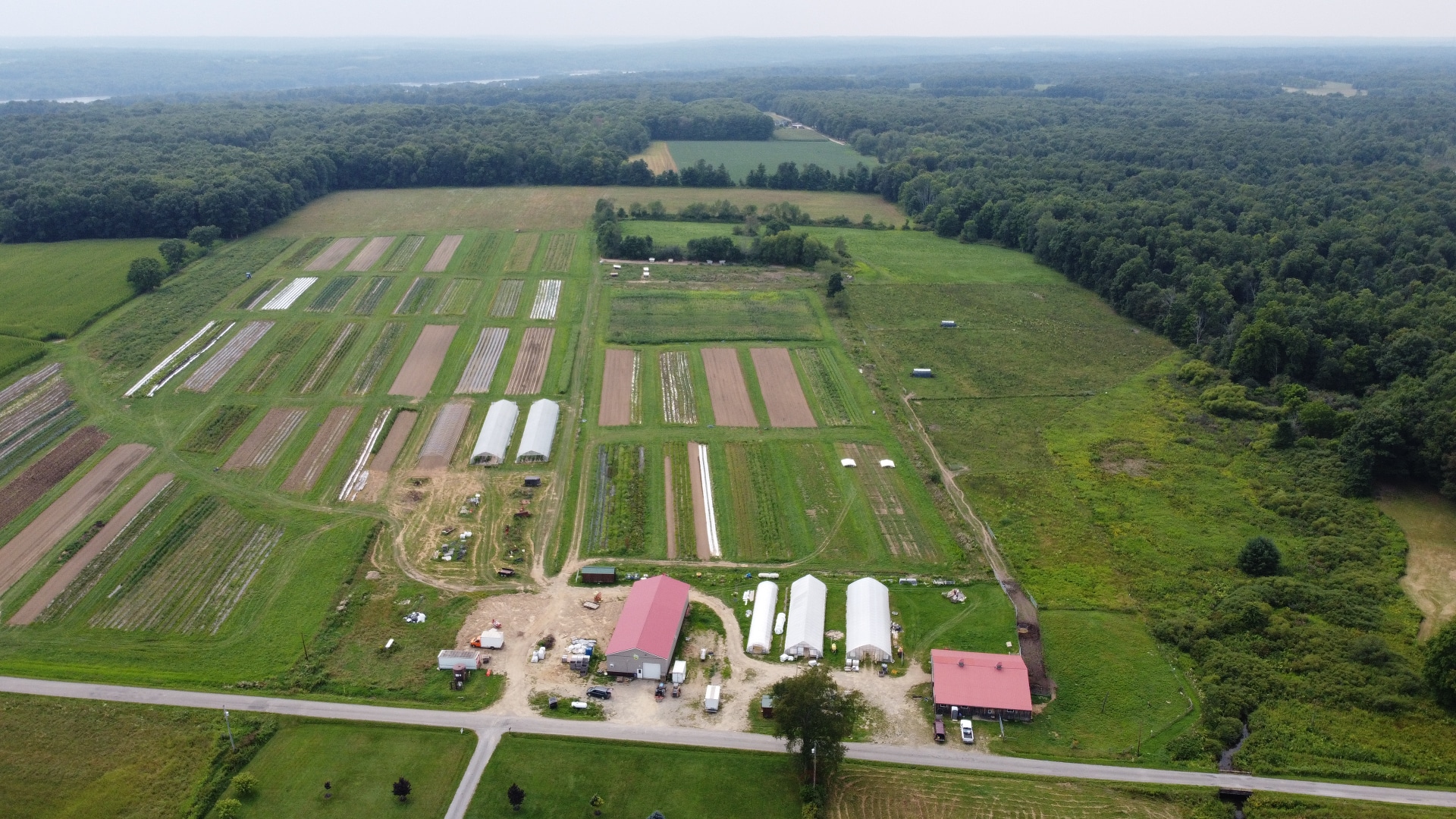
You also moved to a new farm, right? What motivated that change, and was that experience like?
Yes, we bought our current 90-acre farm in late 2016, and moved here in 2017. By the time we left Tionesta, we had five different properties, and we were hauling equipment and our team all over the place. We had an apprenticeship program, where we hosted people from all over. We realized we just need a larger piece of property.
We spent years looking for our new farm, and traveled all over the western part of state, from State College and west. We were on a budget, and had a list of things that we wanted, and we kept whittling that list down. It was sad: Some of the farms had been strip mined, and a lot of the land was so bad that it would take potentially a lifetime to get it back to the land it was prior. We put ads in papers, and oddly enough that’s how we found the place we have now. Once we settled on a price, we had to time it exactly right so we could start farming while we were moving. We tore down high tunnels and greenhouses, we dug up rhubarb and raspberries, it took us three years to move everything. It was a lot to try to do and I don’t know if I’d ever try to do it again in my lifetime. The old owners were very helpful and allowed us to rent the house on the property before we closed, and we started working the land before we owned the title.
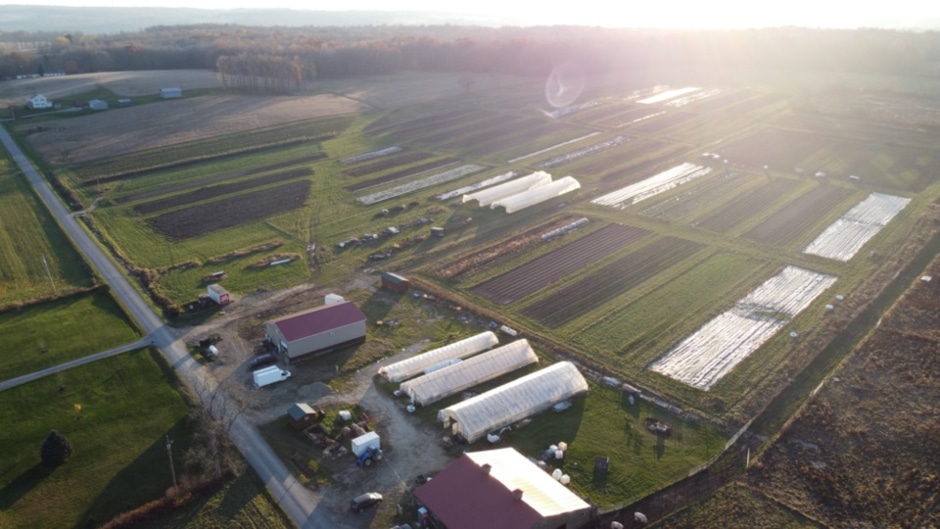
What has it meant for the business to expand like that?
It was a huge investment, I still carry some losses from that year over to this year. That’s how impactful it was. But in many ways it’s great. Having high tunnels in the place you live, means that if there’s a snowstorm, you can just walk right over there. The efficiencies of not shuttling people and equipment around means we can do more because we have more time.
What are some of the struggles you’re facing as a small Pennsylvania farmer in 2022?
We’ve struggled with labor from day one. We tried really hard to do an apprenticeship program, we housed and fed people, and tried to be really good employers and teachers, and that was great. We had some interesting people come through, but rarely did people stick around for a second year, and that knowledge and experience left at the end of every year. We switched to H2A workers who come up from Mexico. We fell in love with one of them, Dante, and we’re working with a law firm to get him residency and citizenship here. We trust him, and he’s just a perfect fit for someone to take us into the next phase of the farm.
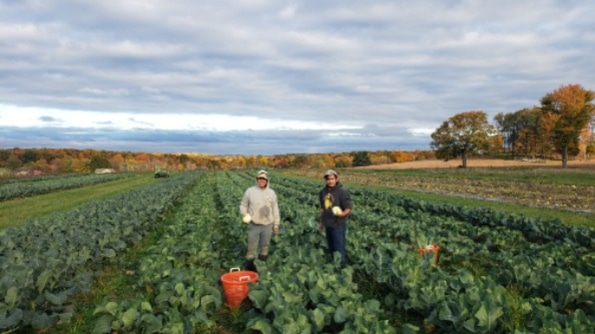
The rising costs of everything is also really tough. I’ve been on this soap box since the end of 2020 when I thought high prices of things would have a snowball effect. But who would’ve ever thought it would be like this? It has a huge impact on us, and it’s daunting going into this season. We’ve cut investment on all new projects, limited staff hours, everything we can think of to trim what we are doing. We’ve eliminated crops, like potatoes, that are too time intensive for the prices they demand. I used to buy a lot more drip tape for irrigation, and we’re going to recycle 28% of it this year by patching it and adding couplers. It’s not a good use of time, but the price of plastic is too much.
I entertained going to back to my old job for a few weeks, but I got my mojo back and was like, hey this is what I want to do. I’m a positive person … you have to be to be in this line of work. At this point in my career, if the farm doesn’t work out, I think it’ll be okay. But I love what I do and I would do anything to keep doing it. And if we finish in the red, I will still bring Dante to this country.
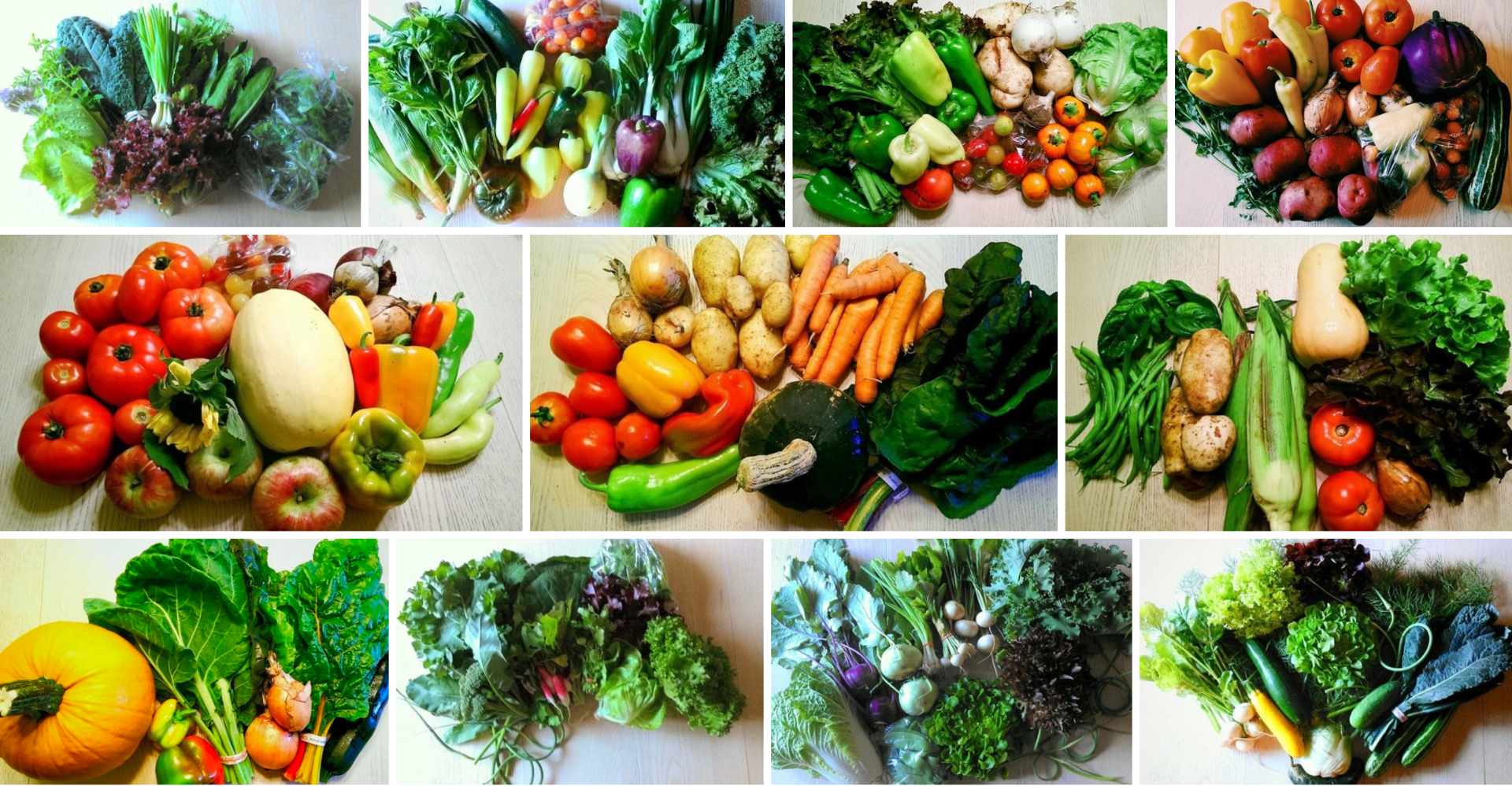
For more info on Edible Earth Farm, or to sign up for its CSA, head to its website. For a day-to-day peek behind the scenes, follow along on Instagram!
- Photo of Johnny and April: Susan Peterson (Edible Earth CSA Member)
- All other photos: Courtesy of Edible Earth
